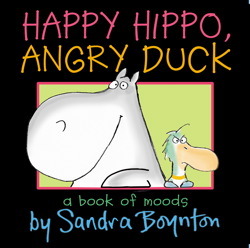 |
| Math Monster, be gone! |
I taught 5th and 3rd grade for 7 years and am taking a little time off as I prepare to have my 2nd kiddo. Someone recently asked my opinion about kids' math-phobia, its source and more importantly, its solution. Here's what I think.
As you well know, many kids struggle with math. I'm probably not going to get a whole lot of love from parents or fellow teachers, but one of the biggest disservices we do for our kids is teach them "tricks" to remember math algorithms. As teachers, we are so pressured by making sure our kids do well on state tests that we look for a quick fix, and teach kids tricks that we assume they'll remember long enough to get them through the test-taking period.
For example, when teaching kids long division, I've heard many fellow teachers teach their kids the saying, "Mom, Dad, Brother, Sister", which is supposed to help kids remember the steps, "Multiply (Mom), Divide (Dad), Borrow (Brother) and Subtract (Sister)." It seems like a great system until it's crunch time, the kids are under stress and have no idea if it was Mom, Dad, Brother, Sister or Sister, Dad, Mom, Brother or Uncle Sam, Aunt Patty, Grandpa, Cousin. There's no meaning to which the kids can connect, and therefore, there's little chance the kids will remember the correct steps in the long-term. Summer comes and goes and as the child enters the next grade, he's right back at square one as far as long-division proficiency. So, his next teacher teachers him the saying "McDonalds, Dairy Queen, Burger King, Sonic" to "help" him remember the steps of long division and here we go again....
Our U.S. educational system is also very flawed (in my opinion) in that we spend small amounts of time on each of 6-7 math strands each year. In Kindergarten, kids get a quick unit on number sense, geometry, patterns and algebra, etc., and then they see each of those units again in 1st-8th grade. The problem with this is that there are so many units that each one is only touched upon for a short time. There is a ton of breadth and not a lot of depth. As compared with many Asian ways of teaching math (which focus on 1-2 strands only for the entire year), our system doesn't allow the investigation needed for kids to truly grasp what they are doing.
Unrelated as these two points may seem, they actually are very similar to one another. My suggestion to parents and teachers who have math-phobic students is to start back at square one, and really spend time with your kids helping them to truly understand the basics of math. If your child struggles with long division, I'd be willing to be that he doesn't grasp that it's really repeated subtraction. (Have you ever sat down to think about division in that way?) Asking a child to learn division, when he doesn't understand subtraction is like asking a kids to string together a compound sentence when he doesn't know the alphabet. Without the proper foundation, his math tower (upon which more and more is constantly piled) is bound to topple.

This all sounds great in theory, but what about reality? My suggestion is to start small. Kids know more than you (or they) think. Obviously, the younger your child is, the easier it is for her to catch up. If fractions are your child's nemesis, "catch" her talking about sharing half her cookie with her sister, or dividing up the pizza among her 4 friends. Use real-life,
meaningful scenarios to get your kids thinking about math. Ask them tough questions and make the commitment to do some research yourself. Do you really understand what it means to "borrow" from the hundreds place when solving a subtraction problem, or do you just cross out the 7, make it a 6 and put 10 on top of the 0 in the tens place?
Kids are like dogs in that they smell fear. If you grew up eeking by math class and clearly don't get it, I'm willing to bet your kids are going to hate math and try to slip through as well. Maybe it's time for both of you to make the commitment to learn more about math than just the tricks that your teachers taught you years ago.
Just "sum" food for thought!









